The Department of Global Health awarded 30 international travel fellowships this spring to support the projects and research of graduate and professional students and medical residents at UW for the next academic year. Students from varied disciplines across the University, including global health, social work, psychology, and pharmacy, will travel to 16 countries pursuing fieldwork experience. Projects range from implementing a harm-reduction program in Vietnam to developing evaluation tools for emergency medical and trauma response systems in sub-Saharan Africa.
Administered by the Global Health Resource Center, the Department's five travel fellowships are funded through the generous donations of private individuals and organizations, as well as support from the Department of Global Health. Learn more about the Global Health Resource Center's fellowships for fieldwork here.
- Warren George Povey Endowed Fund for Global Health Students
- Global Opportunities (GO) Health Fellowship
- Strengthening Care Opportunities Through Partnership in Ethiopia (SCOPE) Fellowship
- Stergachis Endowed Fellowship for International Exchange
- Thomas Francis, Jr. Global Health Fellowship
WARREN GEORGE POVEY ENDOWED FUND FOR GLOBAL HEALTH STUDENTS

Joyce Maria Nimocks, MSWc, School of Social Work | Ghana
Project: Promoting Women's Health Through Ancestral Knowledge & Community Dialogue
Joyce Maria is currently a Master's candidate at the University of Washington's School of Social Work. She was born and raised in Chicago and her ancestors are from West Africa. Joyce Maria's project is to be in conversation with Ghanaian women in the city of Accra about common hair-relaxing and skin-lightening practices. Her project will focus on the public health aspect of this work by researching common, toxic commercial cosmetic products in the greater Accra region, creating and making accessible public literature on how these products can be detrimental to consumers’ health, especially concerning women and their reproductive health. She will hold discussions on traditional beautification practices of West Africa, and create a public database of non-toxic beauty remedies for women all over the world to access, as well as an online platform for women to exchange information about traditional non-toxic beautification recipes that can easily be made at home. This project not only proposes public health solutions for an often overlooked sphere of public health in Ghana, but also for Black women here in the United States.
GLOBAL OPPORTUNITIES (GO) HEALTH FELLOWSHIP
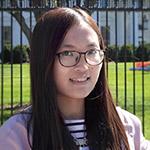
Yilin Chen, MPHc - Global Health, School of Public Health | Kenya
Project: EHealth Project in Kenya
Yilin is a first year MPH student in Global Health at the University of Washington. She is an international student from China. Yilin is going to Kenya with the GO Health Fellowship to help with evaluating an eHealth pilot project. The proposed project fits within a larger project aiming to scale up hospital management information system and telemedicine services in Kenya, to improve access to health care services in both rural and urban regions of Kenya. The project is being led by Peking University Institute for Global Health (IGH), Huawei Technologies, and MicroClinics Technologies, and will be carried out in close partnership with the Kenyan Ministries of Health and Information, Communications and Technology, and the County Government of Lamu.
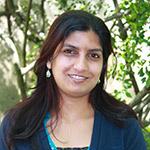
Rubee Dev, MPH, PhDc, School of Nursing | Kenya
Project: Pilot Testing and Refining a Family Planning Decision-Aid
Rubee is a second year PhD student in the School of Nursing. She hails from Biratnagar, Nepal and first came to UW as a Fulbright and P.E.O. International Peace Scholar in 2012. She graduated with a Maternal and Child Health MPH as well as a Graduate Certificate in Global Health of Woman, Adolescents, and Children (Global WACh) from the UW in 2014. Her area of research interest is sexual and reproductive health of adolescents, mainly related to family planning (FP). Her long-term career goal is to develop, implement, and disseminate interventions aimed at reducing the unintended pregnancy rates among adolescent girls and young women in resource-limited settings. Currently she is working on a project designed to support women’s voluntary FP choices by developing an intervention that engages postpartum women in the FP decision-making process, and with their providers, assists them in selecting the most appropriate FP method that is well-suited for their individual needs. For this, she has proposed to pilot test and refine a FP decision-aid among postpartum adolescent and adult women attending MCH clinics in Kenya. The GO Health Fellowship will help her gain skills and experiences by working on a project with a team of mentors with expertise in FP research. She will participate in this fellowship to travel to Kenya, with a goal of carrying out her project successfully and it will give her an opportunity to simultaneously advance her academic, research, and career goals.
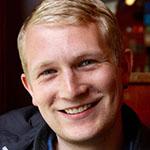
Peder Digre, MPHc – Global Health, School of Public Health; MPAc – Evans School of Public Policy and Governance | Kenya
Project: Working with the Maasai at the Merrueshi Village Clinic in Kenya
Peder is a pursuing a Master of Public Health in Health Metrics and Evaluation from the Department of Global Health and a Master of Public Administration from the Evans School of Public Policy and Governance. In addition to being a full-time student Peder works for PATH — a nonprofit headquartered in Seattle — focusing on product development and organizational strategy. Peder is also active on campus serving as the Chair of the Activities Fee Committee and co-Chair of the Dean’s Advisory Council for Students in the School of Public Health. He graduated from the University of Washington in 2013 with a BS in Molecular, Cellular, and Developmental Biology and a BA in Scandinavian Studies.
With this fellowship, Peder hopes to learn about community-led approaches to providing health services in under-resourced settings. With this, he is interested in learning first-hand about issues around scalability and coverage and how the Merrueshi Village Clinic uses innovative approaches to serve the whole community. It is Peder’s goal to better understand health systems to gain skills and knowledge that will help him be a resource for others as they make decisions that are best for them and their communities.
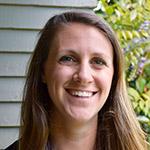
Chantal Donahue, MPHc – Global Health, School of Public Health | Cote d’Ivoire
Project: Adolescent Health in North-Central Cote d'Ivoire
Chantal is a first year MPH student in the Department of Global Health and a Global WACh Certificate candidate. She previously attended Carleton College in Northfield, MN, graduating with a BA in Psychology. Prior to attending UW, Chantal was a Community Health Development Agent with the Peace Corps in rural Burkina Faso, where she collaborated with local health care workers and community volunteers to implement numerous health education programs targeted at maternal, child, and adolescent health and empowerment.
Thanks to the GO Health Fellowship, Chantal will be spending six months in northern Côte d’Ivoire conducting a qualitative research study in collaboration with Health Alliance International. This study aims to understand the factors affecting adolescent access to and utilization of health services in order to implement evidence-based changes to current programs with the ultimate goal of improving health outcomes of adolescents in this area.
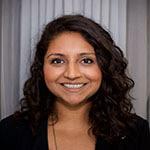
Shiza Farid, MPHc – Global Health, School of Public Health | Kenya
Project: Optimizing Repeat Maternal HIV Testing in Kenya
Shiza is a first-year MPH student in the Department of Global Health at the University of Washington (UW). She is currently a research assistant for the Global Center for Integrated Health of Women Adolescents and Children (Global WACh), where she is supporting two research studies on optimizing repeat HIV testing for pregnant and postpartum women in Kenya. Through the support of the GO Health Fellowship, Shiza will continue to support the work of the two studies; she will undertake the primary data collection for the costing analysis for the studies, as well as conduct informant interviews with peer mother mentors to better understand the repeat HIV testing landscape in Kenya.
Shiza is also currently interning at PATH, supporting a researcher with data cleaning and analysis for multiple studies on the impact, feasibility, and cost-effectiveness of Sayana Press implementation in Senegal and Uganda. Prior to starting her program at UW, Shiza was most recently at the United Nations Foundation as Manager for global policy for the Universal Access Project (UAP). Shiza led UAP’s global advocacy efforts to ensure sexual and reproductive health and rights issues -- as agreed to in the UN Sustainable Development Goals -- are robustly integrated in U.S., global, and financing policies and priorities. In this role, she directly liaised with key UN partners, including UNFPA, led UAP’s youth engagement work, and supported press fellowships to the field. She also provided overall policy support to cross-cutting issues as needed. Shiza has her Bachelors of Arts in Economics and International Relations from American University in Washington, D.C.

Erica Grant, MPHc – Environmental and Occupational Health Sciences, School of Public Health | Rwanda
Project: Gorilla Conservation Employee Health Program
Erica is an OHHAI (Occupational Health at the Human-Animal Interface) scholar, pursuing an MPH in Environmental and Occupational Health. She currently works as a research assistant in the Center for One Health Research. Before coming to UW, Erica received her BSc at UCLA in Microbiology, Immunology, and Molecular Genetics. Erica has previously worked on a range of projects including UCLA's "Parkinson's Environment and Genes" (PEG) study, IZW's "Wild Boars in Berlin" project, and fieldwork studies of plague disease ecology in prairie dogs, ground squirrels and other small mammals in SD and ID. Her research interests include wildlife disease ecology, animals as sentinels for disease, and emerging zoonotic diseases in a changing global environment.
Erica will travel to Volcanoes National Park in Rwanda through the GO Health Fellowship, where she will be working with the Mountain Gorilla Veterinary Project (also known as Gorilla Doctors) to conduct an evaluation of their Employee Health Program (EHP). This program applies a One Health approach to conservation of gorillas, which have suffered considerable population losses in recent years due to Ebola, and face possible extinction due to health threats from diseases shared with humans and other activities like poaching and habitat encroachment. The health of both gorillas and local community members stands to benefit by ensuring workers have access to health care, particularly for endemic infectious diseases like malaria and TB.
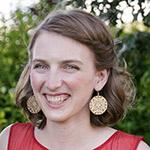
Nikki Gurley, MPHc – Global Health, School of Public Health; MSWc, School of Social Work | Uganda
Project: Midline Assessment of Advocacy for Better Health: An Intervention to Improve Health Services Through Civic Engagement in Uganda
Nikki is a concurrent Masters student with the Department of Global Health and the School of Social Work. Within the Department of Global Health, she is completing the Health Metrics and Evaluation concentration and is in her first-year of coursework. Nikki’s previous experience is with social policy research, with a focus on domestic higher education, and more recently as an intern with the M&E department at PATH. She’s looking forward to continuing her work with PATH in Uganda through the GO Health Fellowship, and gaining experience with data collection processes and program evaluation.
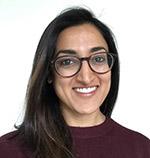
Maahum Haider, MD – Urology; MPHc – Global Health, School of Public Health | Kenya
Project: Working with the Maasai at the Merrueshi Village Clinic in Kenya
Maahum is a graduate of the University of Washington’s Urology residency, class of 2016 and is now a research fellow and Acting Instructor in the UW Urology Department, working part-time in the clinic at Northwest Hospital. She is also a full time student at UW, currently halfway through the Global Health MPH.
Maahum was born in California but grew up mostly in the Middle East, paying frequent trips to Pakistan to visit family. On those trips, she encountered extreme poverty and saw the effects of illiteracy and disenfranchisement on an entire generation of children less fortunate than herself. She decided to pursue this Master’s program because she is passionate about social justice and strongly supports the idea that we are all part of a global community. She wants to contribute what she can with her medical background in a responsible and sustainable way. She believes the best way to do that is by building a strong foundation based on a public health education and first-hand experience working in under-resourced settings. She hopes that this experience will put some of the lessons learned in school into real-world perspective and teach her the tools she will need to pursue international work in her future career.
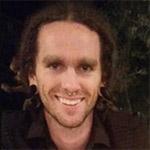
Tim Kelly, Medical student – Global Health Pathway, School of Medicine | Vietnam
Project: Providing Harm Reduction to Marginalized Populations in Can Tho, Vietnam
Tim is a medical student at the University of Washington and is wrapping up his first year in medical school. He is enrolled in the global health and under-served pathways and is the founder of an addiction medicine student interest group. Outside of school, Tim organizes around criminal justice reform and volunteers as a health care advocate. His background is in working with marginalized populations and improving access to evidence-based care. The focus of Tim’s summer project is to develop a culturally relevant, and sustainable, harm reduction intervention for at-risk, stigmatized populations in Vietnam. His goal this summer is to learn how health care works in a political, social, and cultural environment that is very different from his own. Tim also looks forward to learning about the everyday lives of marginalized populations in Vietnam, the struggles and barriers to care they encounter, and the innovative approaches that the Vietnamese people and government are taking to care for these populations.
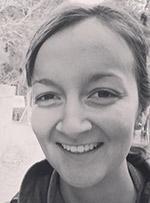
Mary Kirk, MPHc – Global Health, School of Public Health | Namibia
Project: Namibian Adolescent HIV Club Toolkit Analysis and Development
Mary Kirk is pursuing a Master’s in Public Health through the UW Department of Global Health. Prior to this, she served as an education volunteer with Peace Corps in Lesotho. She taught English, health and sexual education in a rural primary school for two years. Given the high prevalence rate of HIV in Lesotho, the bulk of her efforts outside her teaching work were geared toward youth HIV education and voluntary male medical circumcision (VMMC) efforts.
With the GO Health Fellowship, Mary will be furthering her work with youth and HIV by working with I-TECH and the Ministry of Health in Namibia to observe existing health facility-based adolescent HIV clubs. She will engage with club facilitators, adolescent club leaders, pediatric HIV specialists and Ministry of Health staff to determine HIV club best practices, and compile a toolkit to present to the Ministry of Health for them to use to implement these clubs in facilities across the country. This work will serve as her thesis, and provide her with practical experience in the field she wants to pursue after completing this academic program.
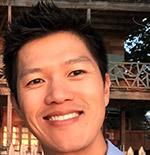
Andrew George Lim, MD, MS, 2nd year Emergency Medicine resident, School of Medicine | Switzerland
Project: Designing a Qualitative Needs Assessment for the WHO Emergency Care Systems Framework
Andrew George Lim, MD, MS is a senior resident physician in emergency medicine at the University of Washington and Harborview Medical Centers. His research interests include the implementation of emergency care systems and critical care education in austere settings. With the 2017-2018 GO Health Fellowship, Andrew will be working with the World Health Organization’s (WHO) Emergency, Trauma and Acute Care Program at the WHO headquarters in Geneva, Switzerland. He will be developing qualitative evaluation tools for the emergency care systems assessment (ECSA) framework, designed for low- and middle- income countries to adopt nationwide emergency medical and trauma response systems. He will be working with local representatives of health departments from several sub-Saharan African nations where the ECSA is being piloted.
Andrew has been involved with emergency medicine residency curriculum development in Tanzania, and interdisciplinary critical care curriculum development for ICU doctors and nurses in Cambodia. Previously, he has taught trauma management, public health and disease prevention for community health workers and backpack medics in eastern Myanmar’s conflict areas. He completed his MD at the University of California, San Francisco and his MS in Public Health Sciences at University of California Berkeley, and is an alumnus of Brown University.

Yuting Lin, MSN, PhDc – Nursing Science, School of Nursing | China
Project: Parent Responses to Pain and Itching in Young Children with Burns
Yuting Lin is a PhD candidate in the School of Nursing at the University of Washington. Prior to coming to the UW, she worked as a registered nurse in emergency department and CCU in Renji hospital in Shanghai, during which she also spent time teaching and doing research on patients with diabetes. She holds a MSN from the University of Washington and a BSN from Shanghai Jiaotong University School of Medicine. In this project, Yuting aims to examine how parents assess and respond to pain and itching in children with burn injury, the impact of parental feelings of guilt and the broad influence of the family unit on children’s symptom experience. Her current research interests with nursing involve symptom management in children with burn injury, family-centered care in pediatric oncology patients, and cross culture parenting behaviors.

Ryann Milne-Price, Medical student – Global Health Pathway, School of Medicine; MPHc – Global Health, School of Public Health | Nepal
Project: Provider Perspectives on Clandestine Abortion in Nepal
Ryann Milne-Price is a public health and medical student from Montana. She is very excited to be going to Dhulikhel Hospital in Nepal to partner with Biraj Karmacharya and the Department of Community Programs to conduct women’s health research in January 2018. She is interested in rural health and community outreach so can’t wait to learn from the experts in Nepal!
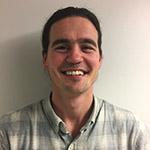
David Roach, MD, Internal Medicine Residency, School of Medicine | Peru
Project: Characterizing ESBL Bacteria in Lima, Peru: A First Step
David was born in Pasco, WA and grew up bouncing between southeastern Washington and southwestern Montana. He attended college in Helena, MT where he studied Biology and Spanish. After college he worked as a medical translator in the Dominican Republic before moving to Seattle, WA to work in the Department of Genome Sciences. He attended medical school at the University of Washington and did extensive laboratory research during this time including a year of dedicated work in bacterial genomics in Jay Shendure’s lab. He is currently in his Internal Medicine residency at the UW, and is planning to pursue a career in infectious disease with a focus on using genomic technologies to address the spread of bacterial disease on a global setting. His GO Health project is a first step in this direction as he will perform genetic testing on clinical bacterial isolates taken from a hospital in Lima, Peru. The goal of the project is to ascertain which strains of E. coli and Klebsiella harbor multi-drug resistant antibiotic resistance genes in that region, which will inform epidemiologic efforts to track and intervene on antibiotic resistant bacteria.
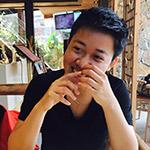
Yiyu Tian, PhDc – Feminist Studies, College of Arts and Sciences | China
Project: Menstruation Leave in China, Significance, Barriers and Possibilities
Yiyu Tian is a doctoral student in the Department of Gender, Women & Sexuality Studies. She received her MA in Chinese Area Studies from Aalborg University, Denmark. Her interest is in the issue of the body and reproductive justice of working-class women in SE China. Her work involves the study of performance, labor issues, and medical discourses and practices in China. Based on her activism with Chinese NGOs that support women workers, her current research focuses on the issue of the body in women workers’ drama performance in Shenzhen, China, especially regarding menstruation and their demands for menstruation leave.
In her activism, she noticed that women workers in China were demanding menstruation leave to be legalized. With the GO Health Fellowship, she will be in Shenzhen, China from August to September 2017. During this period, she will conduct participant observation at events that catalyze menstruation leave organized by labor NGOs; interview women workers on their attitudes of menstruation leave; and interview authoritative parties such as doctors, lawyers and officials in the local public health bureaus on their opinions towards this issue. The aim of her research is to understand why women workers in China demand menstruation leave, as well as to find possible solutions for this long-ignored reproductive health issue that is situated in the process of globalization.
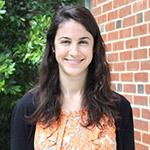
Jennifer Velloza, MPH, PhDc – Epidemiology, School of Public Health | Kenya
Project: Depression Screening Among Pregnant and Postpartum Women in HIV-1 Serodiscordant Couples in Thika, Kenya
Jennifer Velloza is currently a second-year PhD student in the Department of Epidemiology. After receiving her MPH from UNC-Chapel Hill, Jen spent several years working on HIV prevention and mental health research projects in sub-Saharan Africa. She is currently a research assistant at the International Clinical Research Center (ICRC). Her dissertation research focuses on understanding the potential mechanisms by which psychosocial factors, including depression, influence HIV risk among women in Kenya, Uganda, and South Africa. The GO Health Fellowship will enable Jen travel to Kenya to complete one of her dissertation aims with the Thika Partners in Health and Research Development team. She will conduct an ancillary study to determine the cultural acceptability and validity of a depressive symptom screening tool for pregnant and postpartum women. Jen will also have a unique opportunity to be mentored by a team of researchers, clinicians, and a clinical psychologist, who will provide valuable training for her global health research career.
STRENGTHENING CARE OPPORTUNITIES THROUGH PARTNERSHIP IN ETHIOPIA (SCOPE) FELLOWSHIP
Two students will collaborate on the same project in Ethiopia: Improved Access and Uptake of Maternal and Child Health Services in Rural Ethiopia Through Collaborative Community and Health Systems Partnership
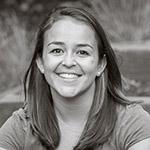
Sheldon Halsted, MPHc – Global Health, School of Public Health | Ethiopia
Sheldon graduated with a Bachelor's degree from Georgetown University where she studied Psychology and Education. After graduating from Georgetown, Sheldon moved to South Africa where she worked for Grassroot Soccer, a non-profit that uses the power of soccer to educate, inspire, and mobilize communities to stop the spread of HIV. Sheldon was employed as a programs intern at their site in the township of Soweto.
When she returned to the U.S., Sheldon worked as a Fundraising Associate for a nonprofit organization that supports an all-girls boarding school in Kenya. She is currently a first year MPH student in the Department of Global Health at UW. Outside the classroom, she interns at I-TECH to support the Haiti team in their clinical mentoring evaluation to assess whether the program has contributed to improvements in quality of HIV/AIDS care.
Sheldon will complete her SCOPE Fellowship this upcoming summer and fall. She will be working with the University of Gondar study team to develop and implement tools for the PEER award. More specifically, she will be working on focus groups with pregnant women, male partners, and religious leaders. With a background in HIV/AIDS care and strong belief in the power of community based partnerships, Sheldon will utilize her skill set to strengthen communication and collaboration between the faith-based and medical communities.
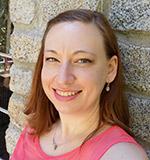
Elizabeth Karman, BSN, MPHc – Global Health, School of Public Health | Ethiopia
Elizabeth Karman is an MPH candidate in the Department of Global Health. She previously attended the University of Washington School of Nursing and graduated with a BSN. After working for several years as an inpatient hospital nurse, Elizabeth served as a Peace Corps Volunteer in rural Malawi, where she worked with her host community to develop adolescent health education interventions. Upon returning to the US, Elizabeth worked in the field of clinical research as the nurse manager of a non-profit clinical research center. Elizabeth’s research interests are centered on adolescent and maternal health education and access to care in low resource settings.
As a SCOPE fellow, Elizabeth will be in Gondar, Ethiopia from June-December 2017. She will be working with a team of Ethiopian researchers performing facility assessments and collecting baseline data, as part of a cluster-randomized trial of an intervention linking Ethiopian Orthodox Priests with community health care workers.
STERGACHIS ENDOWED FELLOWSHIP FOR INTERNATIONAL EXCHANGE
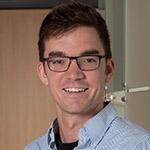
Reed Sorensen, PhDc – Global Health (Metrics), School of Public Health | Mozambique
Project: HIV Patient Loss to Follow-up in Central Mozambique
Reed Sorensen is a doctoral student in Global Health and a research associate at the Institute for Health Metrics and Evaluation (IHME). His work focuses on using results from the Global Burden of Disease study to inform decisions about health policy and resource allocation. As an epidemiologist, much of his research involves characterizing the relationship between risk factors and disease outcomes in populations. For example, on the cost-effectiveness team at IHME, he develops methods for simulating the effect of lifestyle and medical interventions on the incidence of cardiovascular diseases. Similarly, with his dissertation, Reed aims to estimate the avoidable burden of disease by benchmarking countries’ risk factor levels against each other. His research often draws from other disciplines like econometrics and machine learning. As part of the Global Health PhD program, Reed has the opportunity to gain experience abroad. Working with Health Alliance International, he will spend three months in Mozambique developing a study on how HIV patients interact with the health system, in particular, estimating the rate of silent transfers between facilities. He will also provide support to local staff and teach a course on statistical programming. Reed has worked and traveled in Latin America, but this experience will be his first visit to Africa. He hopes to gain a new perspective on his role in the international development community and to learn more about how health systems function (or do not) in low-income countries.
THOMAS FRANCIS, JR. GLOBAL HEALTH FELLOWSHIP
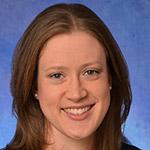
Kristina Bajema, MSc – Epidemiology, School of Public Health | South Africa
Project: Diabetes as a Risk Factor for Tuberculosis in HIV Positive Individuals in KwaZulu-Natal, South Africa
Kristina Bajema is an infectious disease fellow and Master’s student in the Department of Epidemiology at the University of Washington. Her research interests include understanding host factors that contribute to the progression of latent tuberculosis infection to active tuberculous disease, including the influence of non-communicable diseases. Through the Thomas Francis, Jr. Fellowship, she plans to study the association between diabetes and tuberculosis risk among HIV positive individuals in KwaZulu-Natal, South Africa.

Rebecca Brander, PhD – Epidemiology, School of Public Health | Kenya
Project: Characterization of Pediatric Hospitalizations Costs in West Kenya
Rebecca is a PhD student in the Department of Epidemiology, and will be traveling to Kenya with the Thomas Francis Jr. Fellowship. During her time at the University of Washington, she has been involved in epidemiologic research in Kenya as a research assistant, through study coordination and data management. She also has a background in global health clinical programs from organizing and operating mobile medical clinics in the Caribbean and South America. During her time in Kenya, she hopes to gain more experience in primary data collection and the logistics of conducting research in low resource settings. She also looks forward to gaining a deeper understanding of the culture and communities in which she works, and strengthening her collaborations with her team’s research partners in Kenya.

Caitlin Cassot, MPHc – Global Health, School of Public Health; MPAc, Evans School of Public Policy and Governance | Tanzania
Project: Development, Implementation, and Evaluation of the Ukombozi Curriculum
Caitlin is a first year student in the Department of Global Health and the Evans School of Public Policy and Governance. She is a concurrent Master’s of Public Health and Master’s of Public Administration student. Caitlin received a BA from Bucknell University, where she studied Political Science and Psychology. She is a returned Peace Corps Volunteer (Guatemala, 2014-2016) who worked in health education in rural communities. Caitlin is traveling to Tanzania with this fellowship to assist with the implementation of a substance abuse, domestic violence, and HIV prevention program with Health Tanzania and Faith in Action. She hopes to use this fellowship to learn about program implementation and evaluation as well as the vibrant culture of Tanzania. Caitlin is very grateful for this opportunity.

Mason Chiang, PharmDc – School of Pharmacy | Cambodia
Project: Hospital Pharmacy in Cambodia: How to Better Access Medicines
Mason was born and raised in New York City before moving to Seattle in 2015 to pursue his Doctorate of Pharmacy from the University of Washington. Currently finishing up his 2nd year in the PharmD program, Mason is hoping to one day work with underserved communities and increase their access to medications and healthcare literacy. He believes that healthcare is a human right and is passionate about increasing access to quality care globally. As a recipient of the 2017 Thomas Francis Jr. Fellowship, Mason will be travelling to Phnom Penh, Cambodia to assist in health systems strengthening from a pharmacy perspective. He will be spending one month looking for ways to sustainably improve hospital pharmacy practice. Some of his goals include increasing workflow efficiency, encouraging more active clinical involvement of pharmacist on the healthcare team and improving patient access to medication. Mason believes in the power of interdisciplinary change, and will be relying heavily on mentors from the medical, social work, pharmacy and nursing fields to achieve his goals. This will be his first-time working overseas, and he is both excited and nervous about the challenges that await him.
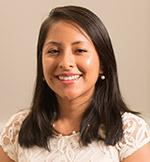
Katherine Garcia-Rosales, MPHc – Epidemiology, School of Public Health | Peru
Project: Evaluating HIV Care Transitions in Clinical Trial Participants
Katherine Garcia-Rosales is a first year MPH student in the UW Department of Epidemiology. Katherine graduated with a Bachelor’s degree in Community Health in 2015 from the University of Maryland School of Public Health. She is a current member of the Student Epidemic Action Leaders (SEAL) team and a tobacco studies scholar. Her research interest includes substance abuse and HIV research with a focus on global health. She is a graduate research assistant at the Fred Hutchinson Cancer Research Center and works under Dr. Ann Duerr in her project with HIV testing and treatment to prevent onward HIV transmission among high-risk men who have sex with men in Lima, Peru. As a recipient of the 2017 Thomas Francis, Jr. Global Health Program Fellowship, this summer she will be working in Lima, Peru to conduct a retrospective clinical and pharmaceutical chart review on patients who were transferred to the government TARGA (Tratamiento Antiretroviral de gran actividad) clinics during the gap of two parent studies, SABES and MERLIN. She is interested in understanding whether any problems arose, such as gaps in receiving ART (antiretroviral treatment), adverse events associated with change in ART regimens, or breaks in virologic suppression. Her long-term goals are to study emerging drug epidemics and HIV transmission and how it is disproportionately affecting different populations worldwide.
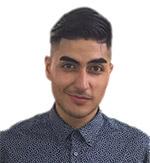
Jahn Jaramillo, MPHc – Global Health, School of Public Health | Thailand
Project: Practicum with the World Health Organization
Jahn Jaramillo came to the University of Washington after spending three years in Thailand following a Fulbright ETA experience. As a graduate student in the Department of Global Health, he is excited to return to Thailand during the fall with the generous financial assistance from the Thomas Francis, Jr. Fellowship in order to carry out his practicum. There, he will intern at the World Health Organization Country Office to conduct research under the supervision of a world-renowned regional expert on Non-Communicable Diseases (NCDs) and mental health. Before his internship, he will be studying Thai at the Southeast Asian Studies Summer Institute (SEASSI) located at the University of Wisconsin-Madison. He hopes to strengthen existing relationships, and contribute towards health initiatives that support vulnerable populations.
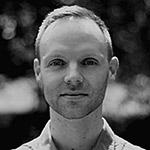
Michael A. Light, MSW, MPHc – Global Health, School of Public Health | Cambodia
Project: Expanding Medical Social Work Practice in Cambodia
Michael received a Master of Social Work (MSW) degree from the University of Washington (UW) in 2013 with a graduate certificate from the Department of Global Health. In 2012, Mr. Light received the GO Health Fellowship to support his work with a team of students under UW Professor, Dr. Tracy Harachi, in collaboration with partners from the Department of Social Work at the Royal University of Phnom Penh. The team conducted operations research which resulted in the development of Cambodia’s first medical social work department at a government-funded hospital. Mr. Light returned to the Department of Global Health in 2015 to complete a Master of Public Health degree and to continue his work with Dr. Harachi. The Thomas Francis Jr. Fellowship will enable him to return to Cambodia to complete a mix-methods evaluation of this novel social work program and to support efforts to expand services within Calmette and to other health care settings. Since completing his MSW, Mr. Light has also been gaining clinical experience as a Medical Social Worker in multiple roles at Harborview Medical Center and Seattle Children’s Hospital with a focus in emergency and palliative care. He is committed to integrating the principles of public health and the values of social work in the delivery of patient care, in the development and evaluation of programs and services, in the provision of clinical education, and through research in the health sciences.

Shadae Paul, MPHc – Global Health, School of Public Health; MPAc – Evans School of Public Policy and Governance | Peru
Project: Health Outreach, Education, and Policy in Rural Peru
Shadae Paul is pursuing a concurrent Master of Public Health and Master of Public Administration at UW, and is interested in maternal health, child health, and international development. After earning her BA at University of Maryland, College Park, Shadae served as a Peace Corps Volunteer in Fiji, South Pacific. She has spent many years working with women, children, and families with organizations such as the International Rescue Committee (IRC), March of Dimes, Mary’s Center, Habitat for Humanity- Women Build, and Hagerstown Birth. This summer, Shadae will work in Lima, Peru with Mamas del Rio (Mama River), a program that uses medical ships to provide much needed maternal and newborn healthcare to remote communities along the Amazon River. Her primary objectives are to apply evidence-based approaches to community health, facilitate organizational planning and management, and develop recommendations for public policy related to maternal and child health in Peru. Shadae is very grateful to be a recipient of the Thomas Francis Jr Global Health Fellowship.

Megan Ramaiya, MSc-GH, PhDc – Clinical Psychology, College of Arts and Sciences | Nepal
Project: Development of a Culturally Adapted Suicide Prevention Intervention
Megan Ramaiya is a first-year Clinical Psychology Doctoral student at the University of Washington, working with Dr. Jane Simoni. Prior to moving to Seattle, she received her Master's and Bachelor's degrees in Global Health and Biology from Duke University in North Carolina. Megan's research interests broadly span the intersections between Global Mental Health and Clinical Psychology, and center around the development and evaluation of culturally adapted behavioral interventions in low- and middle-income settings. For the past four years, she's worked in urban and rural Nepal to adapt and test components of Dialectical Behavior Therapy, an intervention for suicidal clients with complex diagnoses, across a range of populations. Megan is especially interested in understanding cultural variation in how individuals process and regulate their emotions, and using this knowledge to develop targeted interventions for ethnic and sexual minorities. With the Thomas Francis Jr. fellowship, she will work with Dr. Simoni and colleagues in Nepal to begin developing an intervention for suicidal and self-harming men who have sex with men (MSM) by understanding how interpersonal processes influence their ability to manage strong emotions. Megan hopes the fellowship will be one step in continuing to strengthen UW's partnership with community-based mental health organizations in Nepal.
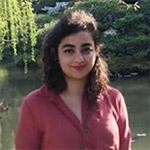
Manahil Siddiqi, MPHc – Health Services, School of Public Health | India and Switzerland
Project: Preventing Child Marriage in India and Beyond: Informing WHO’s best practices
Manahil Siddiqi is a first-year MPH student in the Community-Oriented Public Health Practice program and a Global Health of Women, Adolescents and Children certificate candidate. Manahil earned her BA in Global Health, magna cum laude, from Bryn Mawr College in 2015. Prior to joining the University of Washington, she conducted research on refugee mothering, resettlement and mental health among conflict-affected populations. Currently, Manahil is working with Seattle-based NGO, VillageReach, in their efforts to increase access to life-saving vaccinations for children in Pakistan, and health systems strengthening more broadly. Her career goal is to be at the forefronts of global health efforts focused on improving the health of vulnerable populations around the world, and ultimately enhance knowledge, research, and policy in women and child health globally.
Through the Thomas Francis Jr. Global Health Fellowship, Manahil will work with the World Health Organization’s Adolescent Sexual and Reproductive Health Department to conduct a study investigating the factors and barriers leading to decreased or stagnant rates of child marriage in India. Her work will contribute to WHO’s efforts on the elimination of child marriage, guiding the development of appropriate action plans and international recommendations to reduce child marriage. Manahil’s internship with the WHO exemplifies her deeply personal commitment to the cause of at-risk girls and women, particularly in South Asia.

Carlie Sulpizio, MPHc – Global Health, School of Public Health | Namibia
Project: Understanding the Care and Treatment Experiences of Namibian People Living with HIV: A Practicum Experience
Carlie is currently a first-year MPH student in the Department of Global Health. She previously attended Southwestern University in Georgetown, TX graduating with degrees in Anthropology and Theatre. Prior to attending the UW, Carlie served as Community Health Development Agent with the Peace Corps in rural Burkina Faso, where she worked with local health care workers and community volunteers to implement numerous health education programs targeting water, sanitation, infectious disease and health equity. With this fellowship, Carlie will continue her work in health justice by working with Namibian people who are living with HIV to understand their experiences regarding HIV diagnosis and status acceptance, to engage in and retain in care and treatment, and to ensure adherence to their medication.
